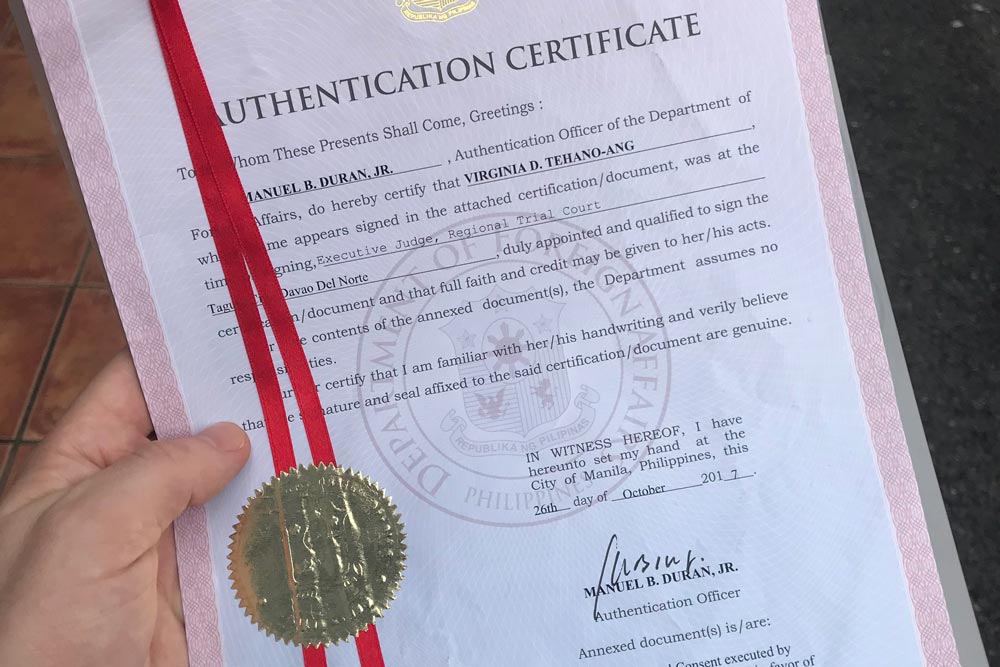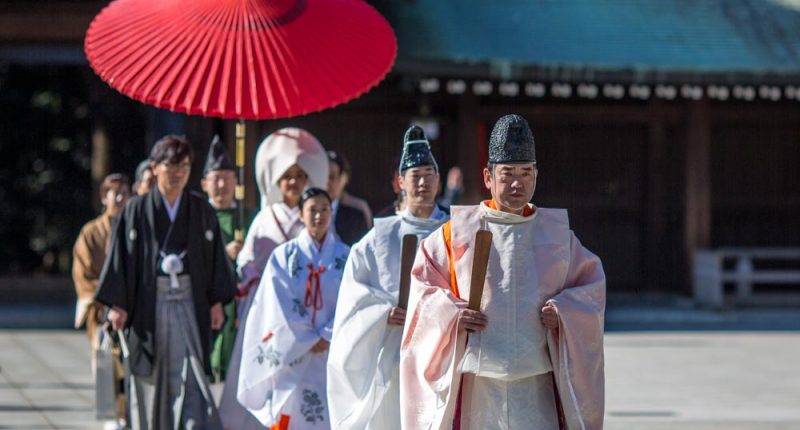This article is about legalizing your marriage in Japan: the requirements and general process. Having gone through the process myself I thought it would be useful for others thinking of getting married in Japan. In our case, we are both foreigners (she Filipino; I British) living in Japan, but the Japan-side of the general process does not differ based on nationality, and so is the same for Japanese citizens and foreigners, alike.
What are the legal requirements to get married in Japan?
All marriages must be registered at a municipal government office. Ceremonies performed by religious organizations are not legal marriages in Japan. Like all other countries, Japan has its own requirements for marriage and these are stipulated in article 731 to 737 of the Japanese Civil Code:
- The male partner must be 18 years of age or older and the female partner must be 16 years of age or older.
- A person who is under 20 years of age cannot get married in Japan without the approval of one of the parents.
- A woman cannot get married within six months of the dissolution of her previous marriage. This is to avoid confusion as to the identification of a child’s father if a pregnancy occurs close in time to the end of the marriage.
Regardless of your own nationality, if you wish to get married in Japan, both partners must first meet these requirements.
What documents do we need?
These are the documents required by the municipal offices to register a marriage.
- Proof of Identification. This can be a passport, drivers licence, residence card, etc. Best to take your passport as this is the most “official” form of identification
- Certificate of Marriage Notification (婚姻届書). These are available at the municipal offices and can be filled out on the day. Note, however, that there is a witness section on the form which needs to be completed by two witnesses (any nationality, over 20 years of age) so you must either go there with your witnesses or have them sign the notification form beforehand. See here for an example of a completed form.
- Certificate of No Impediment (the official name differs by country, e.g. for US citizens it is called an “Affidavit of Competency to Marry”) or a copy of the family register in the case of Japanese citizens. This document basically proves that you are free, and have the legal capacity, to marry. For foreigners, this document will be issued at the embassy of your country in Tokyo. The requirements to get a Certificate of No Impediment differ by country. In the case of a British national, for example, you need to make an in-person appointment at the British Embassy and swear an oath. At this point, the laws of your home country will come into play, e.g. if the legal age of marriage in your home country is 18 then you will likely need to meet this requirement to obtain a Certificate of No Impediment.
- Original birth certificate. This may be required depending on the wording of the affidavit. Best to take it along with you just in case.
You must provide a Japanese translation of all documents submitted (the municipal government office will have a one page sheet for translations of the passport photograph page). This translation does not need to be done by a registered translator; you can provide a translation yourself. The easiest way to do this is to photocopy the original document and write the Japanese next to the original language. Not every word needs to be translated—the most important things are putting names and places into katakana. Fortunately, the affidavits issued by the foreign embassies in Japan should include Japanese text below the original wording so the longest document will already be done for you.

And then you’re married!
Once all the documents are in order and registered at the municipal office you are officially married. Congratulations! You do not automatically receive any certificate to prove this fact—this must be requested separately. There are two types of marriage certificate you can request.
- “kekkon-todoke juri shōmeisho” (結婚届受理証明書). This is the “standard” proof of marriage certificate. One single sheet printed on official paper that states the basic information (names, nationalities, dates of birth, date of registration) and acts as evidence that the marriage was officially registered at that municipal office. Incidentally, if you wish to apply for a dependent visa then this is the document you will need to submit to immigration. It takes 20-30 minutes to produce and costs ¥300.
- “kekkon-todoke kisai jiko shōmeisho” (結婚届記載事項証明書). This is essentially the longer version of the certificate above which includes photocopies of documents submitted to the municipal office to register the marriage. This certificate takes a little longer to produce and costs ¥800.
You do not need to request either of these documents at the time of registration. Either partner can go back to the municipal office at a later date, and so long as they have proof of identity and tell the staff the date of marriage registration the certificates can be issued. Note, however, that this can only be done at the municipal office where the marriage was registered, so if you are moving back to your home country in the near future I would advise you to at least get a few copies of the kekkon-todoke juri shōmeisho (1 above) as that is your only proof of marriage.
What should we do next?
Whether you need to report your marriage at the embassy of your home country, as well as the process for doing so, differs by country. For example, it is not necessary to report the marriage to the British Embassy for British citizens, but for the Philippines you need to submit various documents within 30 days or the report will be considered as “late registration”. Check your embassy’s website or call them directly to confirm.
Other FAQs
How much does it cost?
Registering your marriage in Japan is free.
How long does it take?
Assuming all your documents are in order, the process of legalizing your marriage at the municipal office can be done in under an hour.
Is the Certificate of Marriage Notification available in English?
No, Japanese only.
Are submitted documents returned to me at the end?
No, documents submitted are not returned as part of the process. If want to keep certain documents (e.g. an original birth certificate) you can, however, fill out a short form stating the reason why you need to keep the document and they will be returned by the municipal office.
Can we get married if my spouse does not have a residence card?
Yes. Unfortunately, however, the municipal government offices in Tokyo, at least, are not always on the same page when it comes to the requirements for marriage registration: some will tell you that you will both need a certificate of residence (住民票) which, following the change to the registration system for foreigners in 2012, is no longer possible on a short-term or tourist visa. As frustrating as their arbitrary rules may be, you can choose the ward in which you register your marriage, so it is best to do so at a municipal office more used to dealing with foreigners (e.g. Minato, Shinjuku, etc.). To be clear, the law states that a form of identification is required, but does not stipulate a residence card or residence certificate.





